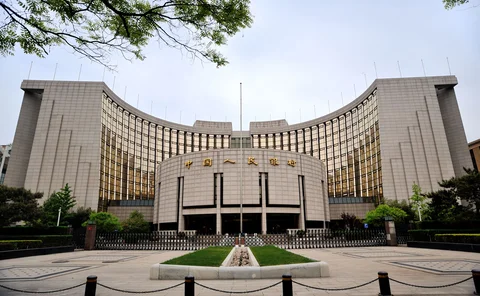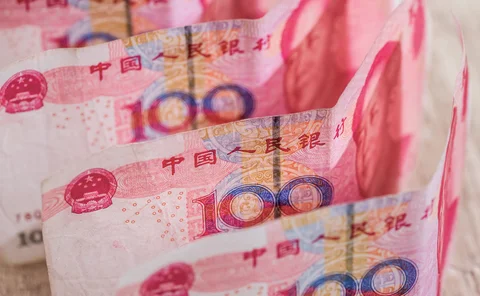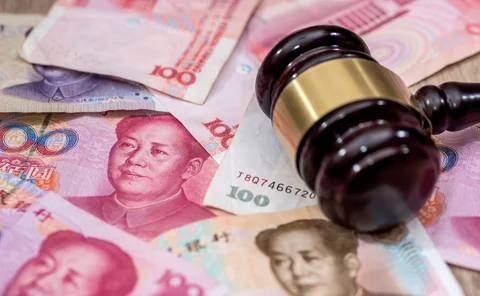
Hui Feng
Dr Hui Feng is an ARC Future Fellow at Griffith Asia Institute, Griffith University, Australia. His research interests are globalisation, international political economy, and China's economy and politics. His most recent book is The Rise of People's Bank of China (Harvard University Press, 2013, with Stephen Bell). He is working on a manuscript on the politics of banking reform in China.
Hui is a Contributing Editor to Central Banking, writing regularly for the Viewpoint column, which brings together timely analysis from experts across the globe. He specialises in China's economic transition.
Follow Hui
Articles by Hui Feng
PBoC leadership faces multiple challenges
Yi Gang’s staying on as governor will only ease some of the pressures, writes Hui Feng
Reshuffle heralds new era of Chinese central banking
Policy room for the next PBoC governor looks limited, as loyalists win out over technocrats for top economic posts
The PBoC, real estate debt and financial stability in China
Central bank policy-makers are restricted in terms of capacity and space by their efforts to manage the nation’s property bubble amid declining growth
Mitigating regulatory risks of mobile payments
Third-party payment providers need to give up data to supervisors to prevent fraud
China abandons cryptocurrencies under the PBoC (this time it’s for real)
New data centres set to be established to compensate provinces for lost crypto mining revenues
Chinese CBDC could bolster renminbi internationalisation – Hui Feng
Academic believes digital currency efforts could facilitate renminbi’s international acceptance and ‘popularity’
Reserve management in China: foreign reserves, renminbi internationalisation and beyond
Hui Feng explores how China has managed its reserves over the past decade, detailing the dynamics of the PBoC's investment strategy and how reserve management has impacted monetary policy
PBoC’s post-pandemic policy is still up in the air
The Chinese central bank has resisted radical easing, but with the NPC meeting this week, more loosening could be on the way, despite debt-level concerns, writes Hui Feng
What is behind China’s digital currency aspirations?
The PBoC sees CBDC as a means of riding the wave of digitisation, and potentially challenging the US dollar’s dominance, writes Hui Feng
PBoC is navigating into uncharted waters on RMB
Beijing and its central bank need to think carefully and act responsibly as the renminbi is steered into uncharted waters
Latest restructuring boosts the PBoC’s regulatory clout
Hui Feng says the restructuring of the PBoC carries “profound implications” for the central bank’s role in policy-making
Who is Yi Gang?
Hui Feng says Beijing’s choice for PBoC chief fits into a wider liberal cadre across senior financial positions – but Yi faces plenty of challenges in delivering reform
Xi faces macroeconomic dilemma after China’s party congress
The Chinese premier will have to work hard to avoid a 'Minsky moment', says Hui Feng
Financial regulation, the PBoC and Zhou’s legacy
Zhou Xiaochuan failed to secure a new ‘super-regulator’ under the PBoC, but has ensured the central bank has a strong voice on China’s new apex stability committee at a time of increased regulatory scrutiny
Zhou did not get what he wanted, but has not left empty-handed
The key five-year meeting in China has resulted in shift of focus to systemic risk and regulation, and away from liberalisation and innovation
PBoC’s hike signals policy management shift
The decision by China’s central bank to raise a suite of interest rates around Chinese New Year marks a shift towards market-based tightening, argues Hui Feng
Institutional undercurrents at the PBoC
Hui Feng asks what is next for China's regulatory framework – and who will succeed Zhou Xiaochuan at the PBoC?
Trilemma, dilemma, and the PBoC's primer for the 'new normal'
Hui Feng argues the PBoC faces a dilemma not a trilemma – but the effort of balancing the two goals is painful all the same
The People’s Bank of China’s internet finance dilemma
China’s central bank faces a challenge encouraging the development of market-based internet financial services while regulating a business where a $7.6 billion Ponzi scheme recently blew up















